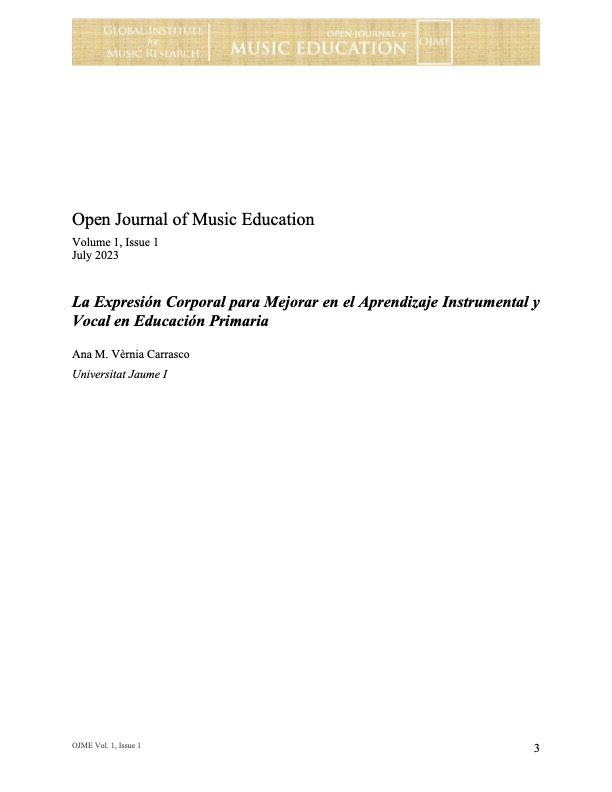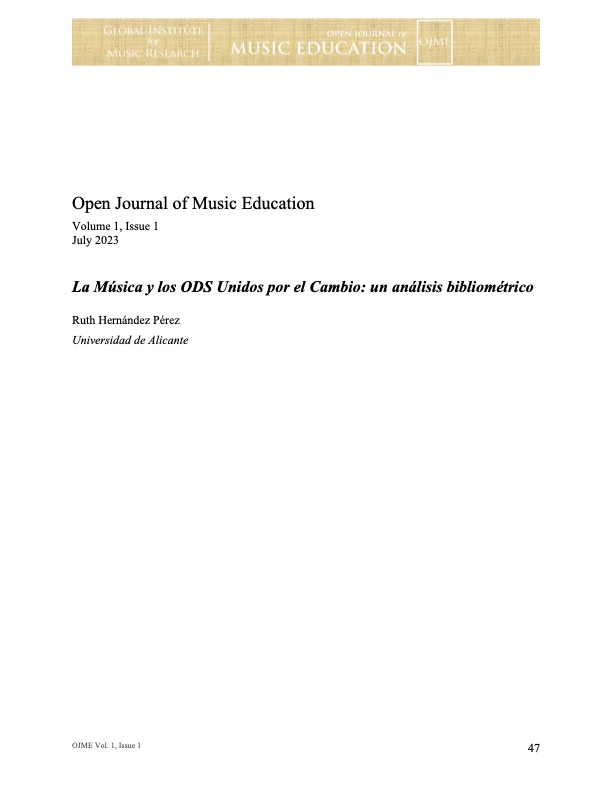
About the Journal
The Open Journal of Music Education (OJME) is a distinguished double-blind reviewed academic journal that provides a dynamic and open-minded platform for sharing diverse forms of music education, encompassing K-12 education, specialized programs for individuals with special needs, seniors, and exploring music education in various cultural contexts and modalities. The journal aims to broaden the understanding and enhance the practice of music education through a comprehensive range of scholarly contributions.
The OJME welcomes a wide spectrum of research papers, including philosophical investigations, quantitative and qualitative studies, mixed-methods approaches, historical analyses, contemporary writings, and insightful interviews. The journal seeks to create a rich tapestry of knowledge by embracing a multidimensional view of music education, fostering dialogue across diverse areas of inquiry.
With a commitment to inclusivity, the OJME provides a space for the exploration of subsets within music education. This includes exploring music education for individuals with special needs, innovative approaches to music education for seniors, and examining music education practices within different cultural and contextual settings. The journal values research that sheds light on the transformative power of music education in these unique and important domains.
Current Issue

In this inaugural edition, our selections underscore three distinct thematic realms, all of them related to the opportunities offered by music and music education to transform the world.
First, we spotlight tangible experiences fostering skill development within primary education. Dr. Vèrnia's contribution delves into the intersection of music and bodily expression, elucidating its interdisciplinary potential within the primary classroom.
Secondly, we delve into the domain of entrepreneurship and leadership within music education. Dr. Ruiz, Shelton, White and Dr. Bourne meticulously unravel the multifaceted competencies requisite for aspiring music educators, proffering invaluable insights beneficial to institutions nurturing such professionals. This work emphasizes the pivotal role of entrepreneurship and leadership acumen, underscoring their significance in shaping the prospective landscape of music education through the process of “intrapreneurship.”
Lastly, we engage with matters concerning music education's role in advancing global sustainability objectives. In this regard, Ms.C. Hernández presents a bibliometric analysis elucidating the corpus of scholarly discourse at the juncture of Sustainable Development Goals (SDGs) and music education. This study sheds light on the burgeoning presence of music-related scholarship within publications aligned with the United Nations' SDGs. It further underscores the growing scholarly enthusiasm for investigating this pertinent interface.
We fervently trust that these contributions will prove instrumental in shaping the trajectory of music education while concurrently inspiring fellow researchers. May these diverse insights enrich the discourse and action towards an ever-evolving landscape of musical education.





